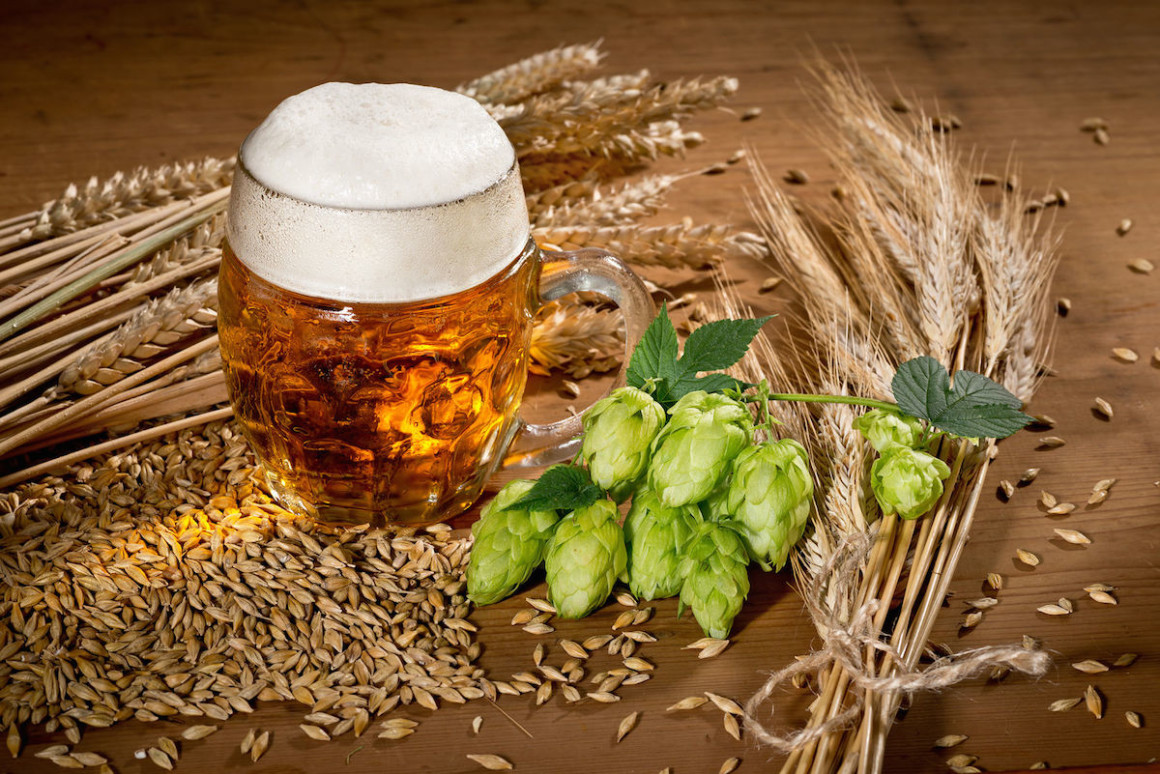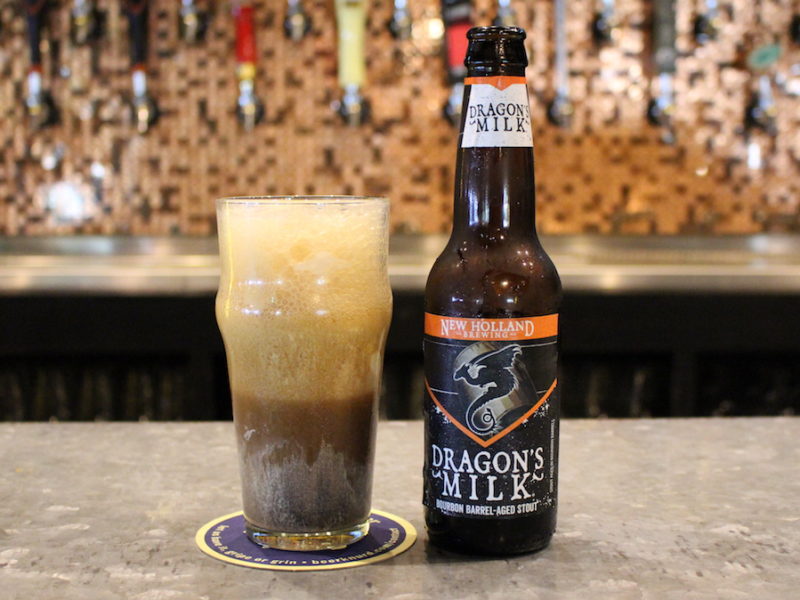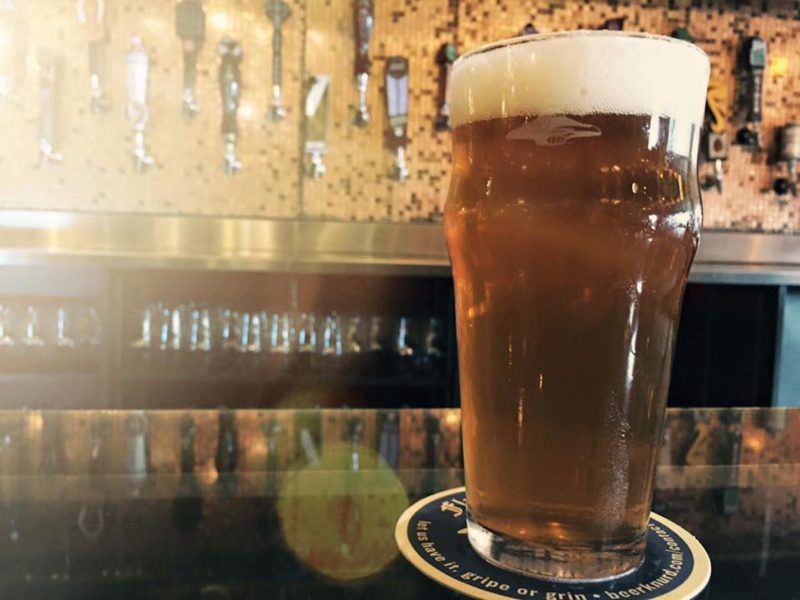Five hundred years ago, in the Bavarian city of Ingolstadt, Dukes Wilhelm IV and Ludwig X approved a law that has since come to define German beer. This Reinheitsgebot or “beer purity law” may have been designed to promote food safety, or it may have been a consequence of competition between brewers and bakers for staple grains (wheat, rye and barley), or it may even have been an outgrowth of a kind of Reformed Christian fervor. Whatever the reasoning, this ordinance, promulgated an official, legally enforceable and rather restrictive recipe for beer — water, barley and hops — whose influence possesses a surprisingly strong aftertaste.
Of course, Germanic peoples had been brewing beer long before 1516, and the Bavarian decree was not the first of its kind. As early as 1156, the Holy Roman Emperor Frederick I sought to protect the citizens of the Free City of Augsburg from poor quality beer. In the Emperor’s own (translated) words: “a brewer who makes bad beer or pours an unjust measure shall be punished; his beer shall be destroyed or distributed at no charge among the poor.” By 1447, the desire to ensure that high-quality beer be available in sufficient supplies led the city of Munich to require its brewers to rely solely on water, barley and hops to achieve flavor but also basic potability.
Beer in the Middle Ages was also celebrated as much for its nutritional content — beer as “liquid bread” — as it was for its socially lubricating effects.
Potability was, in fact, a major concern for the populations of the Middle Ages and early Renaissance who were subject to these laws. Many municipalities of the time simply did not have access to a reliable and safe supply of drinking water. (Remember, brewing requires that water be boiled, and thus purified of unwanted microorganisms.) Beer in the Middle Ages was also celebrated as much for its nutritional content — beer as “liquid bread” — as it was for its socially lubricating effects.
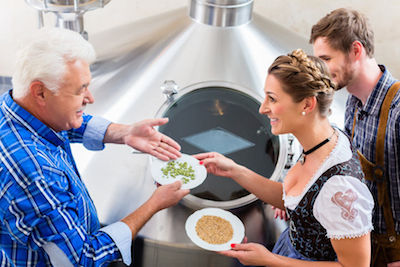 The inclusion of hops in these “purity” laws is a complicated affair. Hops, of course, are essential to balancing the natural malty sweetness of beer. The tart, grassy, spicy and even citrusy zest these flowers add to beer are prized in beer styles as diverse as German dunkels and British ESBs. But hops also have natural antibiotic and preservative properties, and they play nicely with yeast, encouraging its consumption of sugar over that of over bacterial cultures. By including hops in their specifications for “pure” beer, the Reinheitsgebot actually helped to modernize beer as we know it.
The inclusion of hops in these “purity” laws is a complicated affair. Hops, of course, are essential to balancing the natural malty sweetness of beer. The tart, grassy, spicy and even citrusy zest these flowers add to beer are prized in beer styles as diverse as German dunkels and British ESBs. But hops also have natural antibiotic and preservative properties, and they play nicely with yeast, encouraging its consumption of sugar over that of over bacterial cultures. By including hops in their specifications for “pure” beer, the Reinheitsgebot actually helped to modernize beer as we know it.
Beer drinkers of medieval times were accustomed to beers “bittered” with a substance called gruit. The term “gruit,” much like “curry,” simply refers to a mixture of herbs and other flavoring agents. Depending upon regional availability and brewer’s preference, some gruit might incorporate juniper berries (think: gin), nutmeg or horehound (think: certain cough drops). As such, gruit was much more difficult to regulate than hops. Worse, the looseness associated with gruit led to certain brewers including unsavory substances such as soot and chalk in an attempt to mask certain flavors in their beers. And, as the Reformation swept through Northern Europe and communities sought to liberate themselves from the political and economic influence of the Catholic Church, gruit fell further out of favor. By 1516, monasteries had effectively monopolized gruit production and harvesting. The control of hops, on the other hand, accompanied secular investiture: the granting of lands and titles to dukes, barons, earls and the like.
The political implications of the Reinheitsgebot don’t end there. As the independent principalities of present-day Germany began to organize themselves into a unified nation in the mid-19th century, Bavaria promoted the broader adoption of their purity law as a precondition for their participating in this new nation. By 1873, brewers who specialized in traditional styles that included ingredients other than water, barley and hops, such as Düsseldorf’s altbier, did so at the risk of extra taxation. The Reinheitsgebot was expanded to apply to all beer brewed in Germany in 1906, and some critics (and even members of the German Parliament, such as Daniel Schwerd) have argued that German beer lacks variety and has not been able either experiment or innovate as a result.
Even as the Pilsners, Märzens, helles, etc., produced according to its specifications have achieved worldwide popularity, the Reinheitsgebot itself has not always received a warm reception abroad. Brewers outside of Germany, where reference to the Reinheitsgebot remains prominent on beer labeling, consider the law protectionist. In 1987, a European court actually struck down the application of the Reinheitsgebot to imported beer, thus significantly opening the German market to lambics, saisons and other “impure” styles.
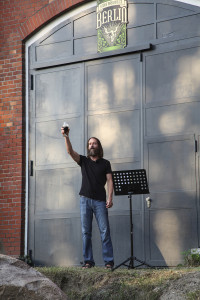
Stone Brewing Co. Berlin
Recently, Stone Brewing opened the first US-owned brewery in Europe—Berlin, Germany to be exact. The bold, in-your-face brewery is expected to make waves (to say the least) in a conservative environment. According to Stone, “while 95% of the beer we brew at Stone meets the Reinheitsgebot, we don’t brew any of our beers with it in mind.” Stone beer is already in demand in Germany and owner, Greg Koch, sees this as an opportunity to bring more, fresher beer to a ripe market while continuing to brew innovative beers alongside Germany’s traditional beer styles.
So, for all intents and purposes, the Reinheitsgebot currently exists in spirit only. With the reunification of Germany after the dissolution of the Soviet Union in 1993, the Reinheitsgebot was replaced by the Vorläufiges Biergesetz (Provisional Beer Law). This revised legislation applies largely to bottom-fermented beer, or lagers, and allows for such beer to include water, malted barley, hops, yeast and modern stabilization and fining agents (e.g., PVPP, an ingredient relied upon by winemakers to improve the clarity of their final product). The Vorläufiges Biergesetz also include provisions for top-fermented beers, or ales, to include extra sugar.
Whether you consider the Reinheitsgebot to be little more than a marketing tool or to be a bastion of brewing decency, there’s no arguing its vital role in making German beer styles uniquely enjoyable. This April 23 (the actual date on which the Reinheitsgebot was committed to parchment), raise a glass to the Bavarians who, regardless of their original intentions, ended up changing the lives of generations of beer drinkers.
Have a favorite German beer style you’d like to praise in commemoration of the Reinheitsgebot? Have you traveled to Germany and sampled the local “pure” beers available there? Set them up and join the conversation with your fellow Beerknurds in the comments below and at your local Flying Saucer.

